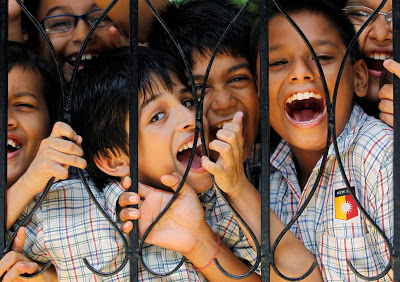Teaching boys to examine gender in patriarchal societies
 |
| Urvashi Sahni – August 23, 2018 |
One group of global experts ranks India as the most dangerous country in the world for girls and women. According to the government, crime against women rose by 83 percent from 2007-2016, with four rapes reported every hour.
One in three girls is a child bride—the most in the world. The government estimates that “there are 63 million ‘missing’ women in the country because of sex-selective abortion, as well as 21 million unwanted girls.” The situation is serious and needs urgent attention.
The problem lies in patriarchal social and political structures, which are inherently violent towards girls. Deeply entrenched patriarchal mindsets tacitly condone gender-based violence and hegemonic views of gender. Boys are valued for their ability to protect and provide, while girls are valued for sexual, reproductive, and domestic labor. The widespread belief is that mindsets must change, which I agree with.
Educating girls is an important pathway towards gender equality, specifically providing equal access and ensuring completion. This needs to be done alongside strong government policy, stern implementation of laws, swift justice, and committed social action. However, we must also educate boys to achieve gender justice.
Education can be a powerful transformative force, provided education itself is transformed. To achieve a gender-just society, where our daughters feel safe, equal, and free, boys and girls both must be taught to examine the construction of gender in patriarchal societies. Whereas girls must learn to recognize themselves as equal and resist discrimination, boys must learn to deconstruct a patriarchal conception of masculinity, and construct egalitarian beliefs.
In the hierarchical societies that I work in, equality is difficult to understand and conceptualize, particularly for our school’s male students who are raised with a sense of entitlement, superiority, and privilege. Regardless of class, caste, or religion, boys enjoy a preferred status over their female counterparts. Changing these conceptual frames involves a paradigm shift. School is a fertile ground for reframing boys’ worldview by enabling them to challenge and disrupt their gendered perceptions of masculinity and femininity.
With this understanding, the Study Hall Educational Foundation (SHEF) embarked on the construction of a curriculum to educate boys for gender justice. Below are learnings from an 18-month study with a group of working-class adolescent boys in SHEF’s Prerna Boys School.
In 15 years of successful innovation at Prerna Girls School, we learned to take a critical look at girls’ lives to understand “what to teach” and “how to teach”. SHEF schools also operate within a strong ethic of care, recognizing care as empowering. These unwavering ideologies were religiously followed while engaging boys in critical dialogues about gender. The dialogues spanned a wide spectrum, from facilitating boys’ greater self and socio-emotional awareness, to masculinity, violence against women, gender, and marriage.
During critical dialogues, boys learned to identify and understand how gender inequality was prevalent in everyday life, its manifestation in their communities, how it made them feel, its impact on their dreams and fears, how it affected their relationships with others, and its impact on their loved ones.
TWO PRINCIPLES
They saw that unequal distribution of resources between genders was unfair and unnatural. We helped them face various forms of violence perpetrated by men. We nudged them to identify why gender inequality persists, and what they can do to change it. In the process, two broad principles emerged and served as our ethical and conceptual guides.
1. Boys must experience responsive care themselves
The first is an ethic of responsive care. For boys to develop caring, nurturing dispositions, and perceive ways of caring other than being financial providers and protectors, they must first experience care themselves. In the classroom, this care manifests itself as trust, respect, and attentiveness. Teachers must pay attention to the boys’ lived realities, earn their trust, and respond respectfully. The boys must feel that teachers care deeply about them, their feelings, and their lives. Countering violent patriarchal school cultures is an important prerequisite. Only in this environment can boys be educated for gender justice. Schools must be sanctuaries for boys, where they are valued for attributes other than holding power over others, and where they learn to transact power without violence. Boys must learn to define their self-worth independently from their ability to dominate others or provide financially.
2. Boys must recognize the current social system as unjust
Only when a strong sense of being cared for prevails is it possible to “develop a feminist consciousness among boys”, which forms our second guiding principle. Raising a feminist consciousness among boys means they must critically examine the current social system and recognize it as unjust, recognize it as a social and historical (rather than natural) construct, and finally, imagine an alternate system that is fairer and less cruel. Such an understanding forms the springboard from which boys can collectively imagine other possible ways of being.
While no single recipe can be followed in all contexts, as our methods must match the needs and realities of children’s lives, there can be theoretical frameworks and ideologies that we all draw from to find our specific best approaches. At SHEF we have learned that boys’ feminist consciousness can be developed in classrooms, within a framework of care that focuses on and respects their lives.


